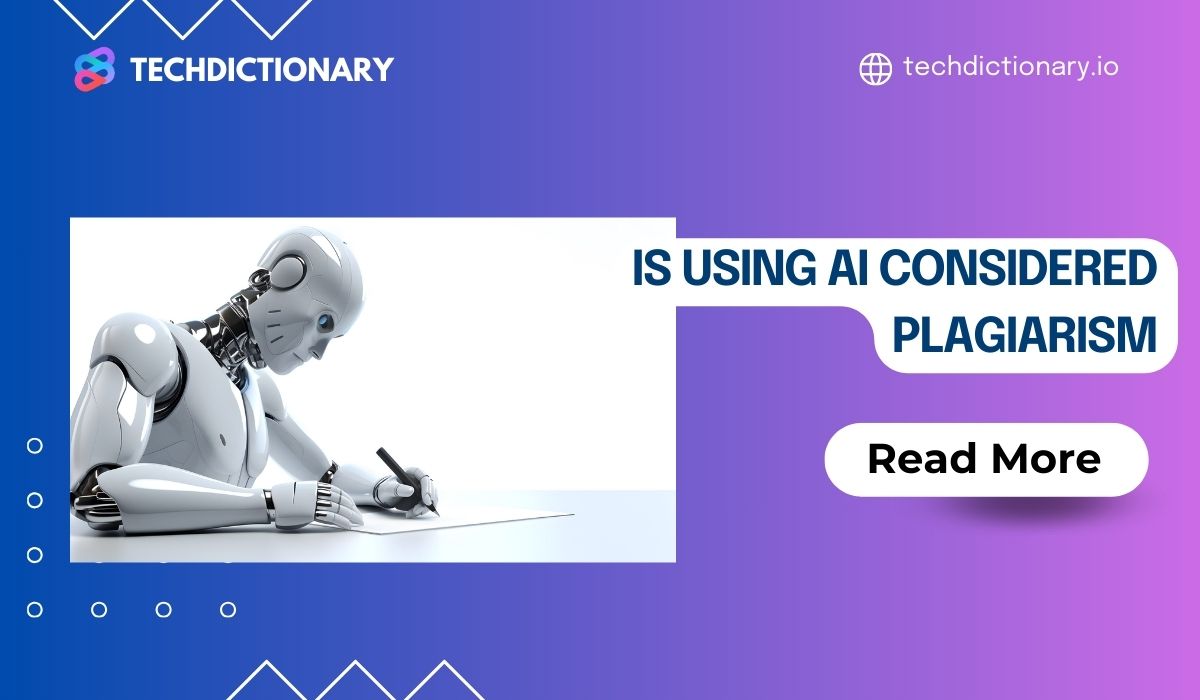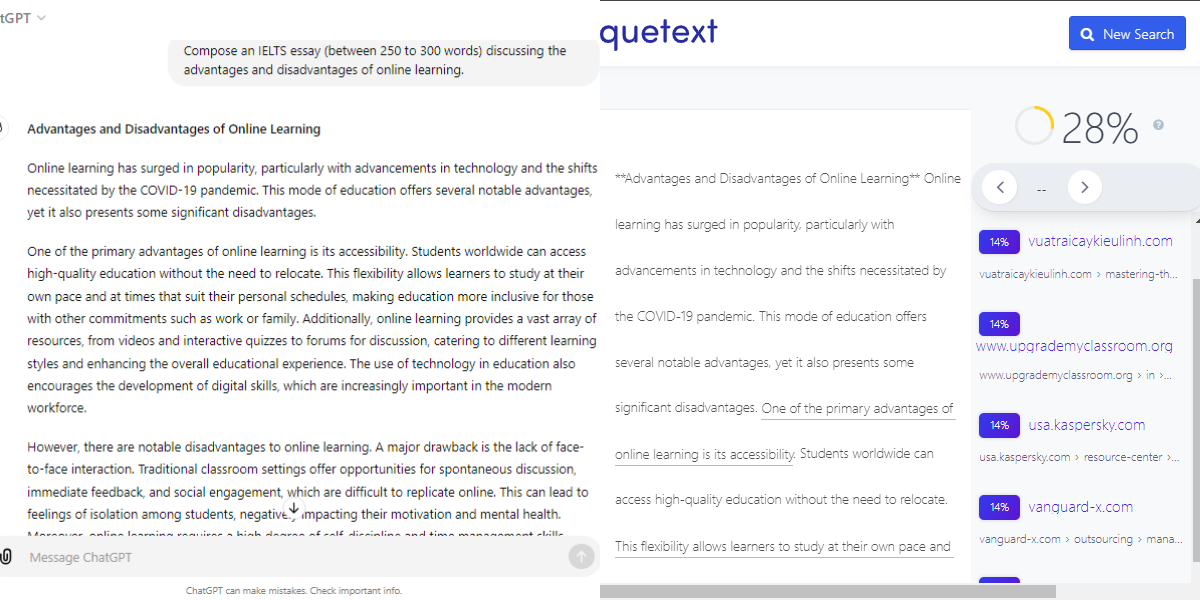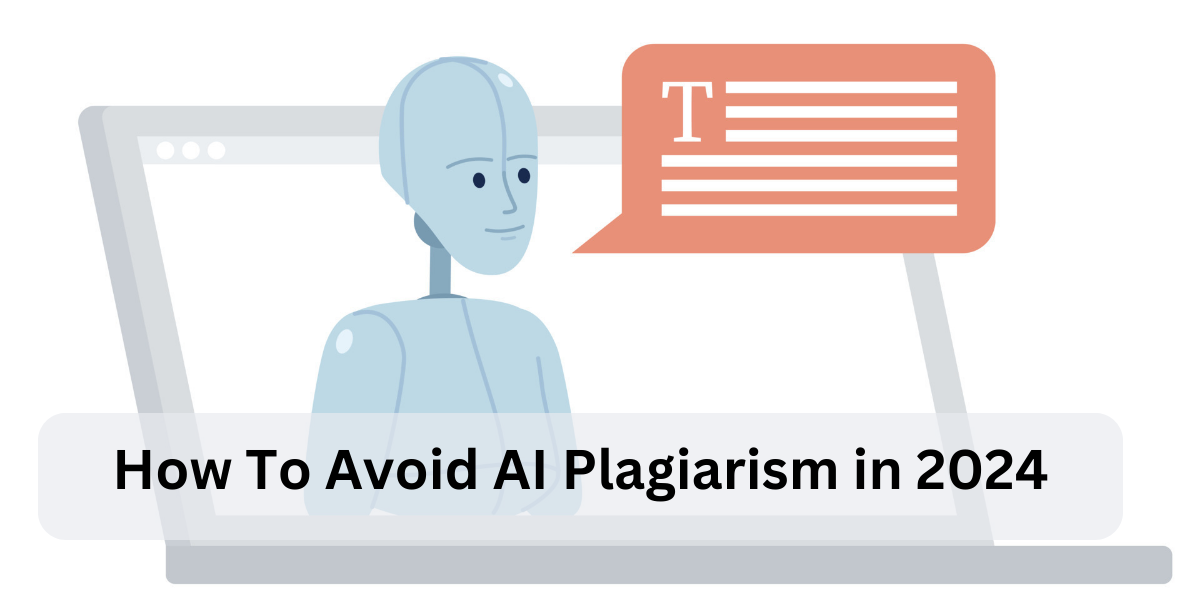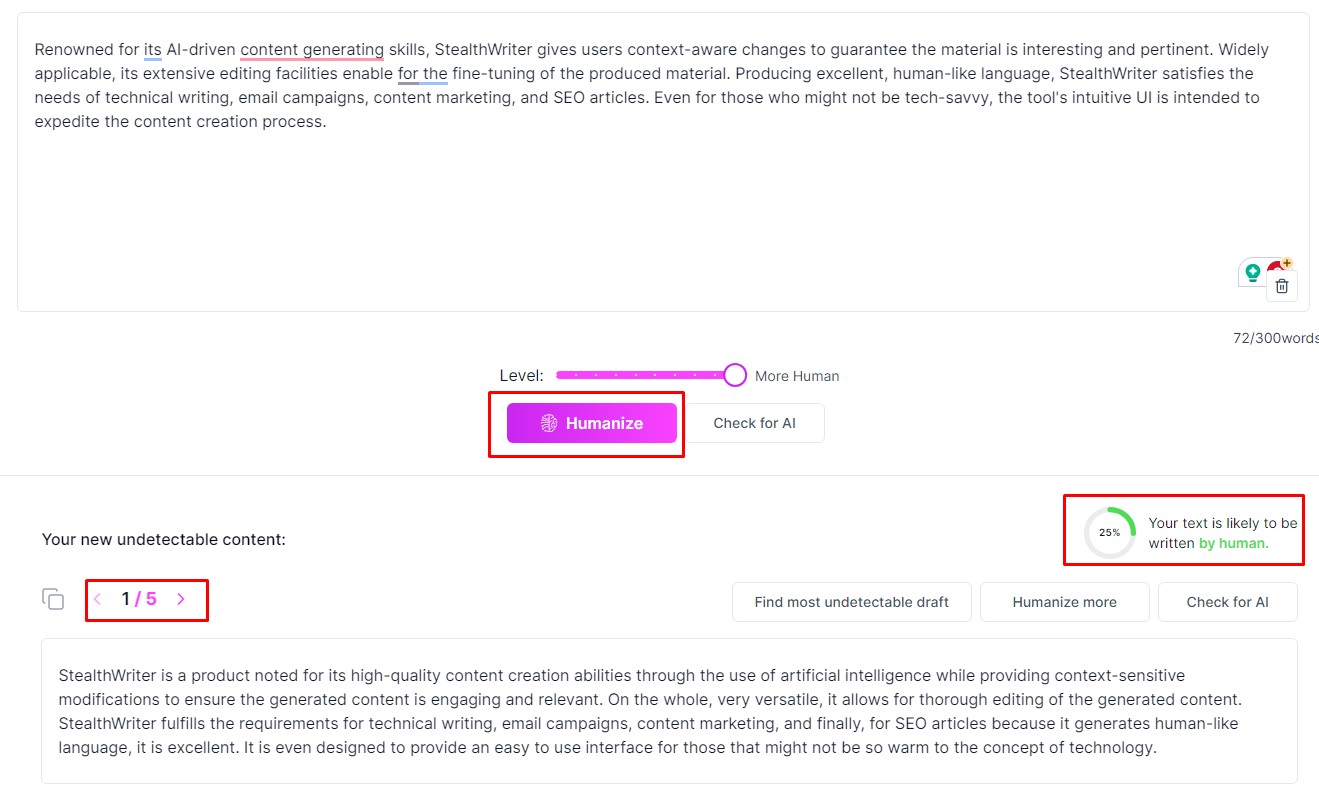
Generative AI can easily produce high-quality content with just a few inputs. The best part is that those writing works are high-quality and ready for publication. However, the question we all wonder is ” Is using AI considered plagiarism?”
Let’s follow our article to solve your wonders and discover ways to avoid AI plagiarism.
Placing someone else’s ideas, thoughts, or information without citing the original sources is plagiarism. Not giving due credit to your earlier efforts is also a form of plagiarism.
Usually, people perceive plagiarism as a violation of ethics and integrity, and as a result, almost all fields prohibit the submission or publication of copied material.
AI content generation is typically simple and quick. Initially, you will register an account with an artificial intelligence (AI) tool that provides content creation technologies. These can be ChatGPT or other AI writing tools like GravityWriter.
The tools create material using complex algorithms. They analyze existing content from the web or other users and use machine learning and copying to produce what appears to be new content.
The purpose of these tools is to generate content that appears to have been written by a human. The tool may utilize synonyms to ensure that the text is diverse, similar to how editing tools use them to avoid detection for plagiarism.
According to San José State University, the answer is YES. It is considered plagiarism to use any of AI writing sources when writing your papers.
“It doesn’t matter which AI program/software you use. Using any of these to write your papers is considered a form of plagiarism.”
Let TechDictionary explain a little further. AI gathers information from various sources on the internet, such as scientific journals, blog posts, and even content created by other AI systems. It then generates content based on this information without acknowledging the original sources. Therefore, sharing or publishing AI-generated content that is considered plagiarized is against the law.
However, there also has a different aspect, stating that AI-generated content is not plagiarism.
“Plagiarism is to steal and pass off (the ideas or words of another) as one’s own or use (another’s production) without crediting the source.” – Merriam-Webster
Since most AI tools generate unique content using machine learning, using AI content writers or chatbots like GPT is not considered plagiarism. We say “most” because some AI tools still search for existing content on the web and then use algorithms to essentially paraphrase without plagiarizing it to generate unique content. That would be considered plagiarized content.
To help you better understand AI plagiarism, we generated an IELTS essay discussing the advantages and disadvantages of online learning using ChatGPT.
Then, we used Quetext to check for plagiarism. The ChatGPT-written essay has a high plagiarism rate, as shown in the image below.

Checking a ChatGPT essay using Quetext
Related Article:
How to Check Plagiarism in Google Docs? 3 Easy Ways
How to Fact-check AI Content Effectively in 2025?
Generative AI makes it much easier to make content. However, it is important to think about ethical issues to avoid unpleasant outcomes, especially in academia.
Before using generative AI for academic work, you must obtain permission from your instructors. Faculty members should have a policy regarding the use of AI tools and clearly communicate this policy in their course materials.
Additionally, if you use AI such as ChatGPT as a reference for your paper, consider to cite it as a source properly.
Is it a good idea to use AI for SEO content? Can Google identify AI-generated content and penalize your website? The answer is yes, Google can detect AI content, but as long as the content is high-quality, your website won’t be penalized. However, if your AI-generated content is low-quality, Google may not rank your website.
Passing plagiarism detection tools and AI detectors takes a lot of attempts. And, if you don’t do it properly, you’ll gain more adverse consequences than benefits from the AI-generated content.
AI content is typically considered plagiarism-free when it overcomes plagiarism tests and AI detections. Here are some smart ways to ensure your work remains original and authentic while using generative AI.

How to avoid AI plagiarism in 2024?

Stealth Writer Humanize AI Content
You may be interested in: Can Plagiarism Checkers Detect AI? The Truth May Surprise You!
Hopefully our article can answer the first question “Is using AI considered plagiarism?”
Thus, it would be best to use AI tools as an assistant for content creation rather than a substitute writer. And if you use generative AI in your works, follow our techniques to leverage the potential of AI content while avoiding plagiarism.

